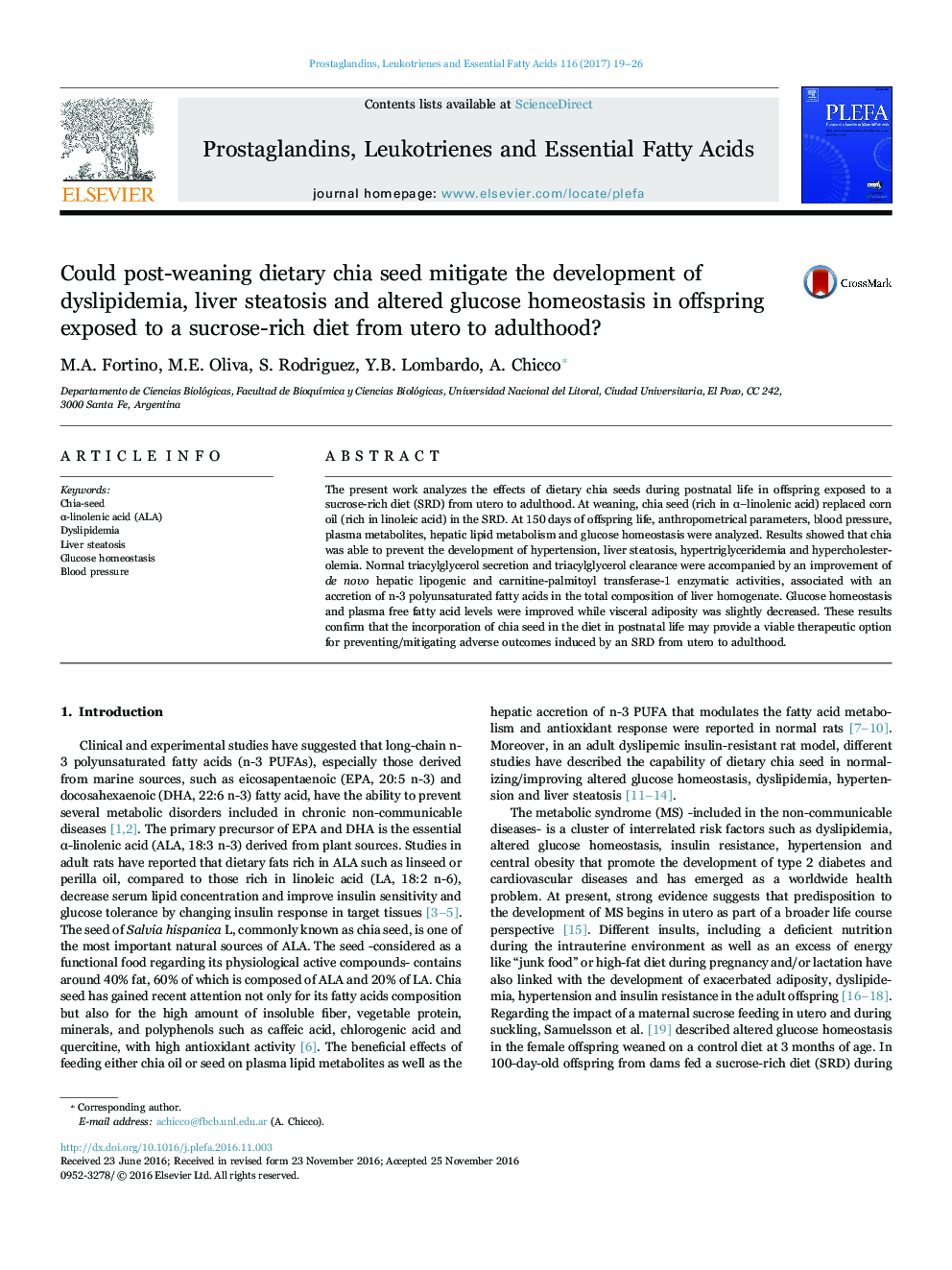| کد مقاله | کد نشریه | سال انتشار | مقاله انگلیسی | نسخه تمام متن |
|---|---|---|---|---|
| 5584882 | 1568003 | 2017 | 8 صفحه PDF | دانلود رایگان |
عنوان انگلیسی مقاله ISI
Could post-weaning dietary chia seed mitigate the development of dyslipidemia, liver steatosis and altered glucose homeostasis in offspring exposed to a sucrose-rich diet from utero to adulthood?
ترجمه فارسی عنوان
آیا پس از برداشتن غذای کیه چای باعث کاهش دیس لپیدمی، استئاتوز کبدی و تغییر هومیوستاز گلوکز در فرزندان در معرض رژیم غذایی غنی از سقز از رحم تا بزرگسالی می شود؟
دانلود مقاله + سفارش ترجمه
دانلود مقاله ISI انگلیسی
رایگان برای ایرانیان
کلمات کلیدی
موضوعات مرتبط
علوم زیستی و بیوفناوری
بیوشیمی، ژنتیک و زیست شناسی مولکولی
بیوشیمی بالینی
چکیده انگلیسی
The present work analyzes the effects of dietary chia seeds during postnatal life in offspring exposed to a sucrose-rich diet (SRD) from utero to adulthood. At weaning, chia seed (rich in 뱉linolenic acid) replaced corn oil (rich in linoleic acid) in the SRD. At 150 days of offspring life, anthropometrical parameters, blood pressure, plasma metabolites, hepatic lipid metabolism and glucose homeostasis were analyzed. Results showed that chia was able to prevent the development of hypertension, liver steatosis, hypertriglyceridemia and hypercholesterolemia. Normal triacylglycerol secretion and triacylglycerol clearance were accompanied by an improvement of de novo hepatic lipogenic and carnitine-palmitoyl transferase-1 enzymatic activities, associated with an accretion of n-3 polyunsaturated fatty acids in the total composition of liver homogenate. Glucose homeostasis and plasma free fatty acid levels were improved while visceral adiposity was slightly decreased. These results confirm that the incorporation of chia seed in the diet in postnatal life may provide a viable therapeutic option for preventing/mitigating adverse outcomes induced by an SRD from utero to adulthood.
ناشر
Database: Elsevier - ScienceDirect (ساینس دایرکت)
Journal: Prostaglandins, Leukotrienes and Essential Fatty Acids (PLEFA) - Volume 116, January 2017, Pages 19-26
Journal: Prostaglandins, Leukotrienes and Essential Fatty Acids (PLEFA) - Volume 116, January 2017, Pages 19-26
نویسندگان
M.A. Fortino, M.E. Oliva, S. Rodriguez, Y.B. Lombardo, A. Chicco,
